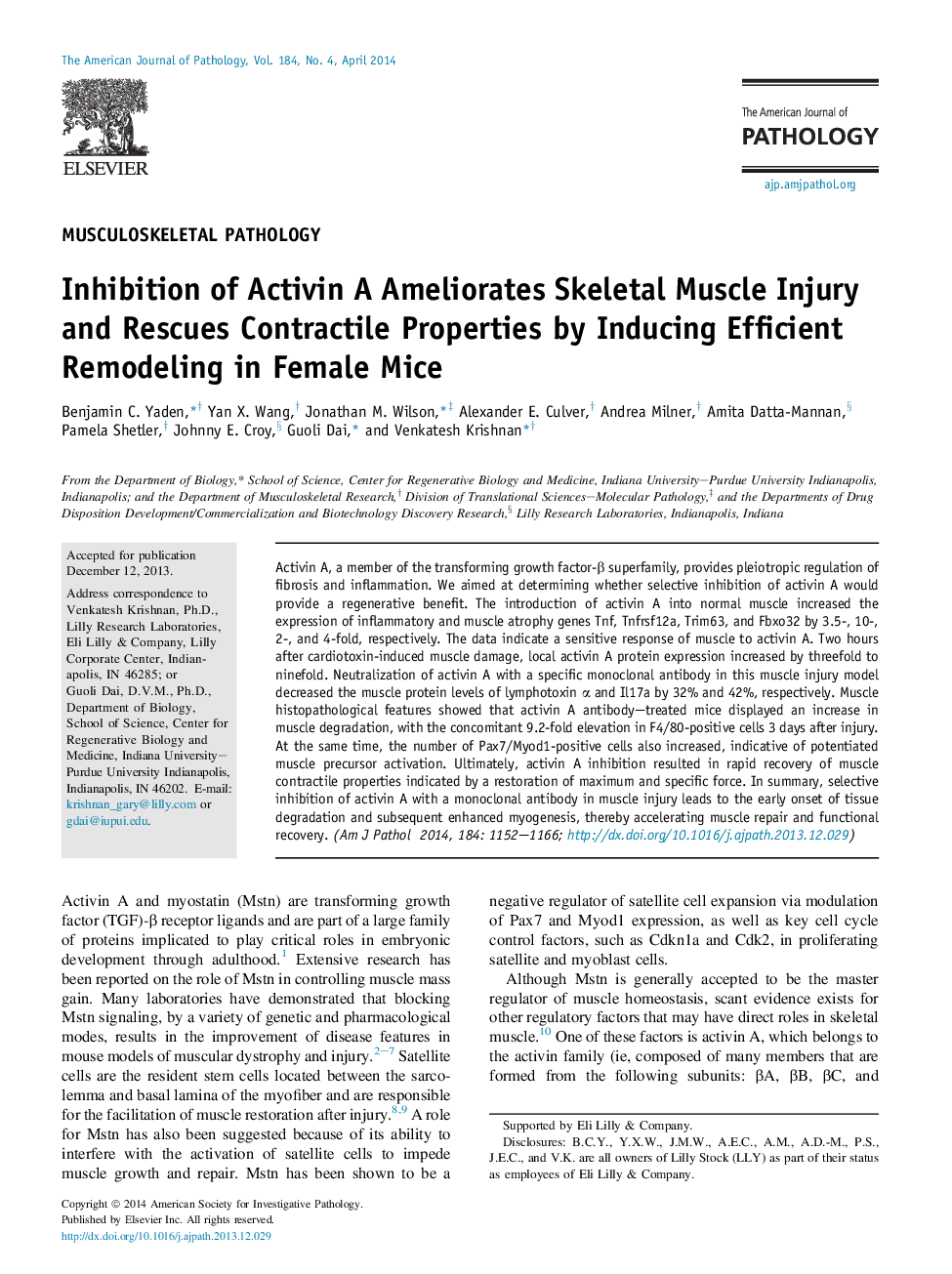| Article ID | Journal | Published Year | Pages | File Type |
|---|---|---|---|---|
| 5934861 | The American Journal of Pathology | 2014 | 15 Pages |
Abstract
Activin A, a member of the transforming growth factor-β superfamily, provides pleiotropic regulation of fibrosis and inflammation. We aimed at determining whether selective inhibition of activin A would provide a regenerative benefit. The introduction of activin A into normal muscle increased the expression of inflammatory and muscle atrophy genes Tnf, Tnfrsf12a, Trim63, and Fbxo32 by 3.5-, 10-, 2-, and 4-fold, respectively. The data indicate a sensitive response of muscle to activin A. Two hours after cardiotoxin-induced muscle damage, local activin A protein expression increased by threefold to ninefold. Neutralization of activin A with a specific monoclonal antibody in this muscle injury model decreased the muscle protein levels of lymphotoxin α and Il17a by 32% and 42%, respectively. Muscle histopathological features showed that activin A antibody-treated mice displayed an increase in muscle degradation, with the concomitant 9.2-fold elevation in F4/80-positive cells 3 days after injury. At the same time, the number of Pax7/Myod1-positive cells also increased, indicative of potentiated muscle precursor activation. Ultimately, activin A inhibition resulted in rapid recovery of muscle contractile properties indicated by a restoration of maximum and specific force. In summary, selective inhibition of activin A with a monoclonal antibody in muscle injury leads to the early onset of tissue degradation and subsequent enhanced myogenesis, thereby accelerating muscle repair and functional recovery.
Related Topics
Health Sciences
Medicine and Dentistry
Cardiology and Cardiovascular Medicine
Authors
Benjamin C. Yaden, Yan X. Wang, Jonathan M. Wilson, Alexander E. Culver, Andrea Milner, Amita Datta-Mannan, Pamela Shetler, Johnny E. Croy, Guoli Dai, Venkatesh Krishnan,
